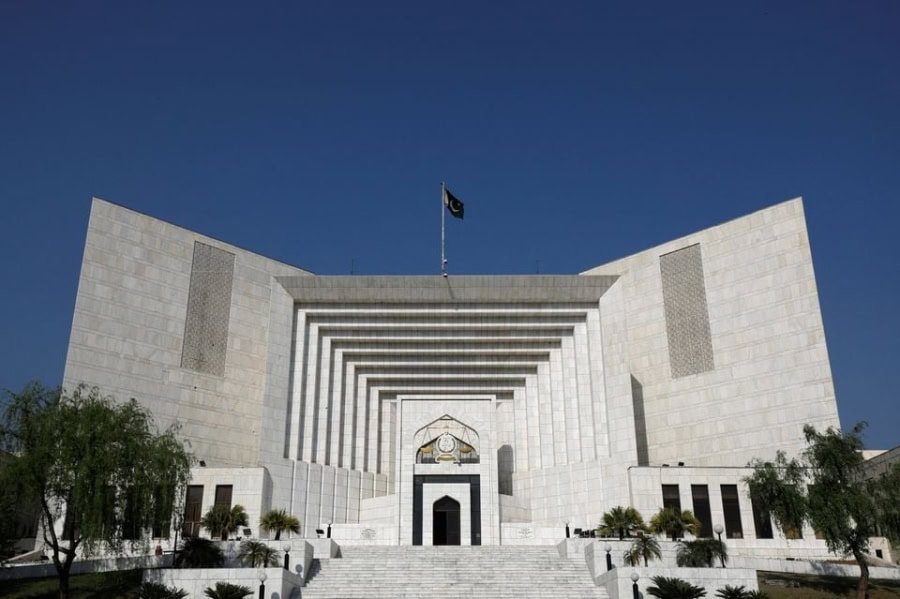ISLAMABAD – In a significant legal triumph for the Pakistan Tehreek-e-Insaf (PTI), the Supreme Court ruled on Friday that the party is entitled to the allocation of reserved seats.
Justice Mansoor Ali Shah announced the 8-5 majority decision, overturning the Peshawar High Court’s (PHC) ruling which had upheld the Election Commission of Pakistan’s (ECP) decision to deny the reserved seats to PTI.
Justices Athar Minallah, Shahid Waheed, Muneeb Akhtar, Muhammad Ali Mazhar, Ayesha Malik, Syed Hassan Azhar Rizvi, and Irfan Saadat Khan supported the verdict. PTI candidates were unable to contest the polls under a single symbol, which led them to align with the Sunni Ittehad Council (SIC), but the ECP ruled against their reserved seat allocation.
The Supreme Court emphasized that the absence or denial of an election symbol does not impact a political party’s constitutional or legal rights to participate in elections and field candidates. The court criticized the commission for misinterpreting the top court’s previous decisions.
The ruling clarified that PTI remains a political party that secured general seats in the national and provincial assemblies in the 2024 general elections. The PHC’s March 25 judgment was set aside, and the ECP’s March 1 order was declared unconstitutional and without lawful authority.
The Supreme Court affirmed PTI’s legal and constitutional right to reserved seats, rejecting the SIC’s appeals. PTI is required to submit a list of eligible candidates for the reserved seats to the electoral body within 15 days, after which the ECP must publish the list within seven days.
The full bench, led by Chief Justice of Pakistan (CJP) Qazi Faez Isa and comprising Justices Syed Mansoor Ali Shah, Muneeb Akhtar, Yahya Afridi, Amin-ud-Din Khan, Jamal Khan Mandokhail, Muhammad Ali Mazhar, Athar Minallah, Syed Hassan Azhar Rizvi, Ayesha Malik, Shahid Waheed, Irfan Saadat Khan and Naeem Akhtar Afghan.
The issue of reserved seats arose after over 80 PTI-backed independent candidates joined the SIC following the February 8 elections, aiming to claim seats reserved for minorities and women. However, the ECP denied the allocation, citing procedural failures by the SIC.
The ECP argued that reserved seats are allocated based on proportional representation to parties that contested and won general seats. Despite the SIC’s attempts, the electoral body and the PHC upheld the denial of reserved seats, prompting the SIC to seek intervention from the Supreme Court.
The Supreme Court’s decision to suspend the ECP order led to a shift in the parliamentary majority, impacting the ruling coalition’s two-thirds majority.
The 13-member full-court bench conducted nine hearings on the matter, with the SIC’s plea being opposed by the federal government and the electoral body.
The government and the ECP contended that the SIC did not qualify for reserved seats due to procedural lapses and failure to meet legal requirements. The PML-N also argued against the SIC’s eligibility, stating that the party did not
Reserved seats case timeline?:
On February 21, the Sunni Ittehad Council filed a petition with the Election Commission for the reserved seats.
On February 28, the Election Commission reserved its decision on the case regarding the Sunni Ittehad Council’s reserved seats.
On March 4, the Election Commission announced a 1-4 decision on the Sunni Ittehad Council’s request for reserved seats.
On March 6, the Sunni Ittehad Council approached the Peshawar High Court for reserved seats.
On March 14, the Peshawar High Court dismissed the petitions filed by the Sunni Ittehad Council for reserved seats.
The 5-member larger bench of the Peshawar High Court unanimously rejected the appeal against the non-allocation of reserved seats to the Sunni Ittehad Council.
On April 2, the Sunni Ittehad Council filed a petition with the Supreme Court for the reserved seats.
On May 6, a three-member bench headed by Justice Mansoor Ali Shah suspended the decisions of the Peshawar High Court and the Election Commission.
Due to the constitutional nature of the matter, the three-member bench referred the case to the Judges Committee for the formation of a larger bench.
On May 31, a full court was formed to hear the case regarding the Sunni Ittehad Council’s reserved seats.
The full court held the first hearing of the case regarding the Sunni Ittehad Council’s reserved seats on June 3.
The full court, headed by Chief Justice Qazi Faez Isa, reserved the decision on July 9 after nine hearings.
(More to follow)









